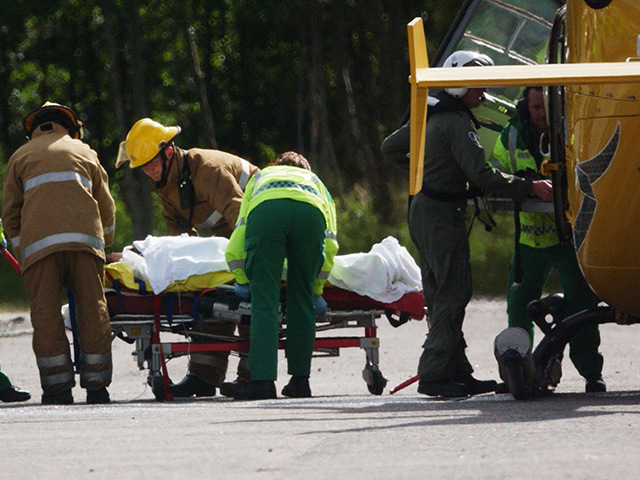
An offshore installation has been likened to a multi-storey industrial complex, complete with hotel, restaurants, sports areas, dive bells, heliport, offices and healthcare facilities.
They are invariably located in remote and hostile environments and such locations carry risks for the workforce.
Most of the risk is mitigated by robust health and safety procedures. However, the remoteness of the site plus the impact of weather necessitates that good healthcare support is available.
The “engine room” for oil and gas production offshore is the people and their capacity to work in these adverse conditions.
Even if we take care of an engine, service it regularly and protect it from the weather, unexpected breakdowns do occur.
When a breakdown occurs on a remote country road we can call roadside assistance. With any luck they will arrive without too much delay and generally the problem can be fixed and we can go on our way.
Occasionally, a rescue vehicle will be needed to transport the car to a garage for repair.
Offshore, access is limited. Roadside assistance is provided by the medic and the recovery vehicle is usually medevac by helicopter.
Healthcare support
Ensuring a high standard of healthcare offshore involves selecting Medics with the appropriate background, experience, training and attitude.
The demands on the 21st century medic are quite different to those of the early days in the North Sea.
Today’s medic has a much broader remit. They have the normal clinical responsibilities such as the treatment of minor day-to-day ailments and must be prepared to manage acute medical emergencies or major incidents.
In 2013, the offshore population has also changed. Many more people work offshore who take regular medication for chronic underlying medical conditions increasing the expectation on the medic.
Extended role duties aim to support the health and safety of the asset and the workplace health of the employee. Examples are: measuring noise levels and testing hearing; asbestos sampling, testing water supplies, checking levels of dangerous chemicals such as mercury or ensuring employees who wear breathing apparatus do so safely.
Competency
Competency frameworks are required by operators for their medics. This ensures they are kept up-to-date with health-related matters and any non-treatment related duties are undertaken only after appropriate training.
Onshore, nurses and doctors must undertake continuous medical education and doctors undergo revalidation.
But professional standards currently do not exist for offshore medics. This is being reviewed by the Institute of Remote Health Care (IRHC) working with universities and medical experts to agree the standards for offshore health practice.
This month, the IRHC is sponsoring an awards ceremony to recognise medics submitted by the industry as having excelled in some way, either through clinical care or their innovation or significant contribution in their job offshore.
The challenge faced by the single-handed remote healthcare practitioner must not be underestimated. It is a difficult job as lives are at stake rather than the performance of the engine.
Dr William Freeland is medical director, Medical Services, International SOS/Abermed
Recommended for you
